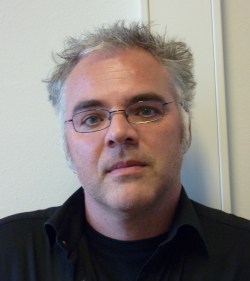After our article about the status of citizen science in Lithuania, we decided to take a tour of Europe and invite our Advisory Board members to tell us about themselves and their career in citizen science. We start with Dr Henk Mulder from the Faculty of Science and Engineering, University of Groningen, Netherlands.
Henk, when were you first involved in citizen science?
After my chemistry studies, and as a conscientious objector, I did my replacement for military service at the Science Shop of Groningen University. I loved being able to use my scientific knowledge to help citizens and their organisations. To me, discussing their needs and how research could fulfil them is at the core of citizen science. We are always aiming for the triple win: when the students involved in the research can learn, civil society benefits from the results, and supervisors support the development and co-creation of new knowledge that will be published.
I am still happily doing this work 30 years later, and enjoy sharing and developing my expertise with colleagues all over the world through the Living Knowledge Network, whichI co-founded.
What is the status of citizen science in the Netherlands? Is it widely known and used?
There seems to be growing interest in citizen science in the Netherlands, and I hear the phrase ‘living lab’ on a regular basis. There is a Belgian-Dutch citizen science platform and some universities and other research institutes are involved in larger citizen science projects. Moreover, the Netherlands is widely known as the birth nation of the Science Shops in the 1970s and these are still present in many universities.
In addition, co-production of knowledge is becoming more mainstream: multi-disciplinary and thematic research groups are formed, and have a close connection to stakeholders. A national programme supports 18 so-called ‘City Deals’ to forge strong collaborations between research organisations and local stakeholders, including citizens (“City Deal Kennis Maken”). The Dutch National Research Agenda is another effort to use citizen inputs to shape research agendas.
In your opinion, what are the main challenges facing citizen science today?
To me, two factors prevent innovations in both curricula (training students for citizen science) and research methods: the overburdening of academic staff and strict – some might even say outdated – criteria for promotion and tenure. Facilitation for collaboration often needs to be subsidised, which means that continuity cannot always be assured.
Do you think the EU-Citizen.Science platform can address some of these issues?
I strongly feel that sharing best practices and training materials will help to reduce the burden on academic staff. It will also be easier to find international collaboration partners. On top of that, the better the value of citizen science is documented and highlighted, the more policy-makers and funders will be inclined to support it.
Those interested in citizen science in the Netherlands should also explore the Citizen Science Lab’s website. They are an EU-Citizen.Science consortium member, and are working to establish a Dutch network for citizen science.
